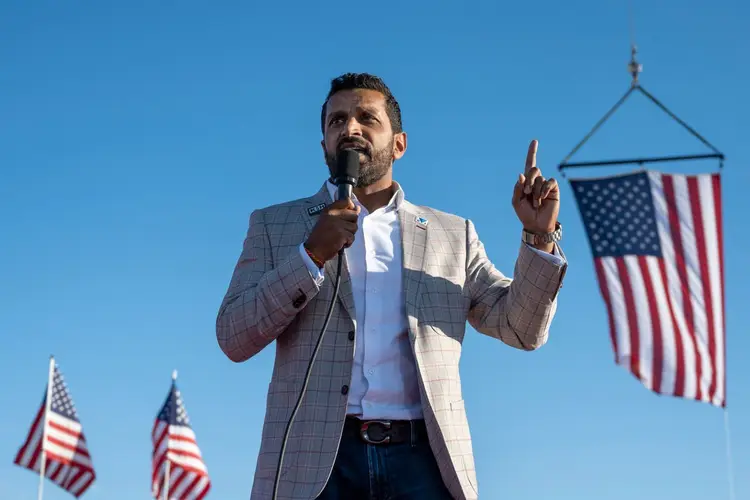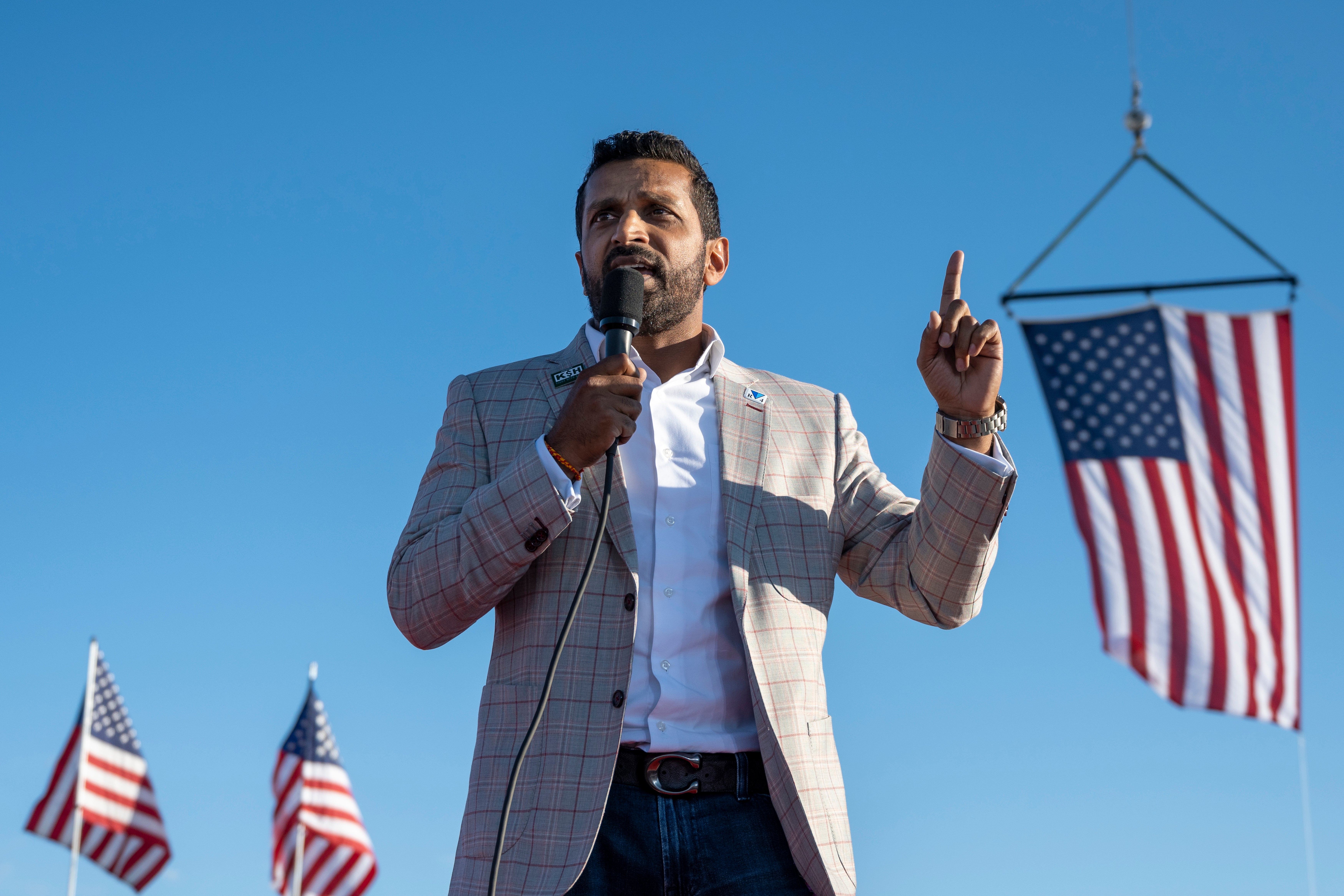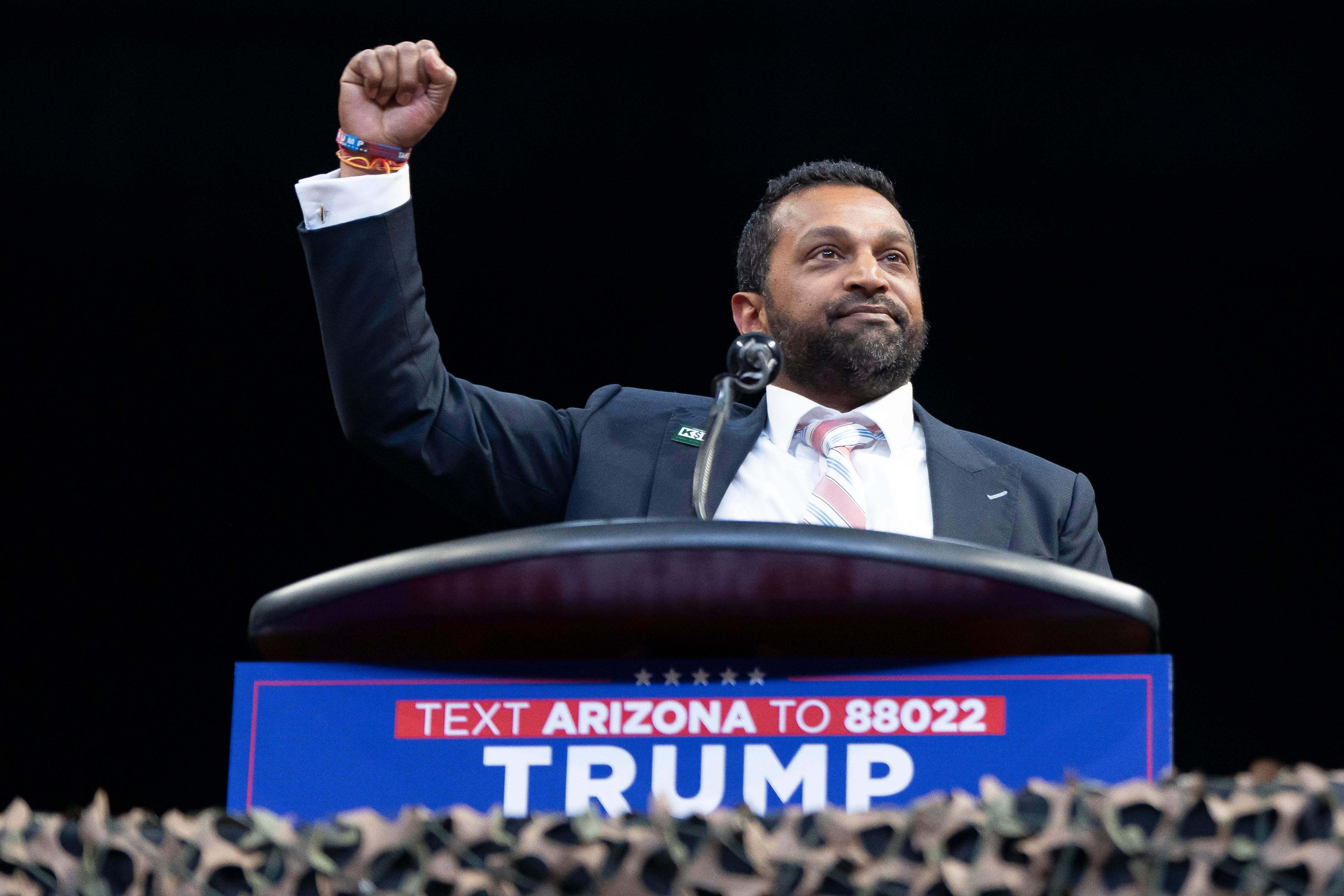Will Donald Trump use Kash Patel at the FBI to go after his critics?

Get Exclusive US Insights: Daily Inside Washington Email
Subscribe For Our Free Inside Washington Email!
Subscribe For Our Free Inside Washington Email
I'd love to receive emails about promotions, events, and news from The Independent. Please check out our privacy policy.

Kash Patel's nomination to be the next FBI director serves as a clear signal to journalists, especially as Donald Trump's threats against the First Amendment grow stronger.
Patel, who has been a dedicated supporter of Trump for many years, previously held a political position at the Pentagon during the last administration. He is now set to lead the country's biggest law enforcement agency, awaiting Senate confirmation.
His nomination, along with President-elect Trump’s evident preference for a close associate to lead the Justice Department, indicates that the new president aims to have those agencies under his control. Patel has mostly outlined his ideas for how this will take shape.
"We're going to pursue those in the media who falsely accused American citizens of aiding Joe Biden in manipulating presidential elections. We will hold you accountable, both legally and civilly," he stated during an episode of Steve Bannon's War Room podcast.
In an interview with the Washington Examiner, he elaborated on the danger, using notably similar wording.
"The president has made it clear that, regardless of whether it involves the Department of Justice, FBI, or Department of Defense, we will put an end to the use of law enforcement and intelligence for political purposes," he stated.
"It's straightforward. If they violated the law, you take legal action against them, whether it's criminal or civil," he continued. "If they broke the law, rely on the Constitution; that's all there is to it."
The subtle threat might have revealed Patel's position: acknowledging that civil law could be involved clearly indicates that even Trump's most devoted supporters recognize the constraints of criminal laws.
Despite the president-elect's bold statements during the campaign and Bannon's promises to target the media, there are limited legal avenues for the DOJ or FBI to use against journalists reporting on the Trump administration, whether about its past or present actions.
The FBI and the Department of Justice don't have the authority to create new laws to prosecute journalists. Most of the media published in the United States is safeguarded by the speech and debate protections outlined in the First Amendment.

Fans of Trump and the broader Trump community on social media can likely expect civil lawsuits against major media companies. However, the future president has not had much success with this in the past, despite making similar promises during the 2016 campaign.
The DOK was used earlier by Bill Barr, a former ally of Trump, in an attempt to protect the president from a defamation lawsuit during his first term. Although Barr tried to leverage federal resources against E. Jean Carroll, the writer who alleged that Trump sexually abused her and lied about it, Carroll ultimately came out on top.
One major concern for journalists, especially those working in national security, arises with Patel's nomination. His selection could indicate that the FBI would be quick to take legal action against journalists who release classified information or documents sourced from government whistleblowers. This situation is particularly ironic considering the support that Trump's circle had for Julian Assange and Wikileaks, which were instrumental in disclosing leaked documents taken from the Democratic Party's servers back in 2016.
Despite that backing, it was Barr in 2019 who directed the Department of Justice to pursue charges against Assange, a move the Obama administration had opted against due to worries about press freedom.
Many experts believe that if Trump’s team is genuinely intent on targeting the media, this is the path they are most likely to follow. The rationale behind this is the longstanding inability of Washington politicians to tackle issues related to press freedom, particularly in relation to the Espionage Act. This law was first applied during the Obama administration to vigorously go after whistleblowers, a move that sparked criticism for potentially stifling journalism and possibly violating the First Amendment, according to various advocacy groups.
David McGraw, the chief legal officer of The New York Times, mentioned to the Columbia Journalism Review before Trump's election win earlier this year that this would be the most probable law under which charges could be filed for a direct prosecution.
In a different article for CJR, journalist and writer Kyle Paoletta noted, “Despite the threats Trump poses to journalism, the harsh reality is that the challenges reporters currently encounter stem from long-term neglect regarding the slow erosion of press freedom facilitated by the Espionage Act over the last hundred years.”
Notably, there were no prosecutions of journalists during Trump's first term, except for Assange. The last instance of a reporter being imprisoned by the federal government for not disclosing a confidential source occurred during the presidency of George W. Bush.
Unless there are changes to the law, we can expect a similar situation during a potential second term for Trump. The individuals at greatest risk of prosecution will once again be federal employees from various agencies who share confidential documents and information with the media. Throughout Trump's first term, from 2017 to 2021, the FBI and DOJ were particularly intent on targeting those who leaked information, especially as many officials within different agencies expressed concern and anxiety over the policies and directives put forth by his administration.
There's also the legal issue of whether journalists can be charged under the Espionage Act, the legislation that deals with classified information. Bannon and his supporters have consistently claimed that this approach is the most effective way for the right to shut down the media.
Although the Supreme Court currently has a solid conservative majority, it doesn't simply agree with everything that the new president proposes. Any disagreements or conflicts on this front could be taken to the highest court in the country, which has a history of pushing back against some of Trump's more extreme legal attempts.









































